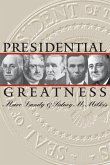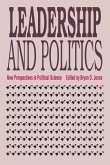The Plains states in the late 1800s flung open their political doors to the Populist Party while their fellow midwestern neighbors to the east left it standing on the porch. Why the contrasting receptions? Traditionally the disparity has been solely attributed to economic differences. A superficially logical answer, says Jeffrey Ostler, but too simple. In the past, scholars of Populism have simply assumed that the People's Party thrived in areas where farmers suffered severe and unique economic hardship and that prosperous areas had no need for a third party. But Ostler contends that the distinction historians have made between "hardship" on the Plains and "prosperity" to the east is overdrawn. All farmers were affected by the deflationary economy of the 1870s and 1880s, and for indebted farmers everywhere, trapped between the money market and the market for crops, the late nineteenth-century economy worked like a vise. Through a comparison of economics and politics in two Populist states--Kansas and Nebraska--and one non-Populist state--Iowa--Ostler shows that economic conditions alone cannot explain why the People's Party flourished or floundered. The contours of the existing political order, he shows, played a key role. Although all three were staunchly Republican after the Civil War, they had gone their own political ways by the mid 1880s. Iowa's system evolved into a two-party competition between Republicans and Democrats while Kansas and Nebraska remained dominated by the Republicans, making them ripe for a political challenge. This book not only helps explain why Populism failed to become a national movement but also illuminates the perennial question of why third parties have met with little success in the United States.
Hinweis: Dieser Artikel kann nur an eine deutsche Lieferadresse ausgeliefert werden.
Hinweis: Dieser Artikel kann nur an eine deutsche Lieferadresse ausgeliefert werden.








